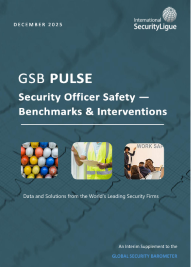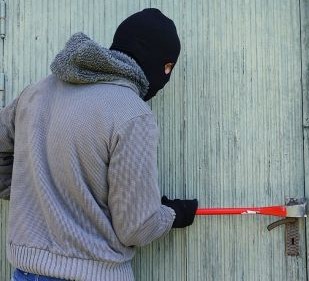
Key Points
• As urban populations increase around the world, cities can expect to face social challenges like an increase in minor crimes, homelessness, public drug consumption, and individuals experiencing mental health crises—and this puts pressure on public officials to find novel remedies that work and are cost-effective.
• Police and social services organizations are often in agreement that police officers should be used sparingly to address minor issues of social disorder, and that mental health practitioners, private security, and other alternative forces can be utilized to relieve the burden from police so they can focus on more serious criminal matters.
• When crafting innovative approaches, public officials should consider research that proves private security is an effective supplement to public police, including for deterring crime, helping individuals in need, and controlling disorder.
Re-Thinking Police, Incident Response
Another high-profile police shooting in the U.S. of an unarmed, disoriented woman in her own home has reignited calls for a gentler approach to people in need—a burgeoning issue that is tracking with increasing urbanization around the world. What is curious is that taking a more selective approach to police incident response often has the support of both social welfare organizations and public law enforcement, yet the status quo can persist.
In July, this contributed to the death of Sonya Massey, a 36-year-old Black woman who had called 911 for help, and resulted in jail for the Illinois sheriff's deputy who shot her in the head after she picked up a pot of boiling water off her stove. At a press conference, the attorney representing Massey’s family explained that she had mental health challenges and was experiencing a crisis.
“She needed a helping hand. She didn’t need a bullet to the face.” — Ben Crump, Massey family and civil rights attorney.
In European countries, generally, there is both less crime and less reliance on police than in the U.S. Rather than utilizing police to address every issue, policing is used as one tool among many for addressing social issues. In Sweden, for example, mental health professionals are deployed to the scene of someone experiencing a mental health crisis rather than police.
Using police to address social issues can make criminals out of people in need of help—or worse. For example, sending police to a mental health emergency often proves deadly, according to a study in the U.S. by the Washington Post (“When a call to the police for help turns deadly,” June 22, 2022). In one 6-monthperiod in 2018, 25% of individuals shot and killed by police were experiencing a mental health crisis.
When problems arise, it makes sense for societies to call on individuals who are appropriately trained in managing them, be they a mental health counselor, drug interdiction specialist, or mediator. It is a strategy that police typically support.
In cities around the world, police are needed to combat crime and social disorder that is a natural consequence of growing population concentrations in urban areas. Alongside social rights groups that want to limit the role of police, police themselves would rather focus on the most serious issues.
In May 2023, London’s police commissioner outlined his plans to stop police response to mental health emergencies absent an immediate threat to life. “We are failing Londoners twice,” wrote Rowley. “We are failing them first by sending police officers, not medical professionals, to those in mental health crisis, and expecting them to do their best in circumstances where they are not the right people to be dealing with a patient. We are failing Londoners a second time by taking large amounts of officer time away from preventing and solving crime as well as dealing properly with victims, in order to fill gaps for others.”
Shoplifting is another minor issue that can also consume an outsized amount of police resources. In Tampa, Florida, a large volume of calls for service in cases of suspected small-scale shoplifting resulted in hard feelings, as described in an investigation by the Tampa Bay Times. “[It’s] a huge problem in terms of the amount of time,” complained Officer James Smith. “We are, as a police department, at the mercy of what [retailers] want to do.”
In Harris Country (Texas), the Sheriff’s Office Strategic Planning and Policy Unit conducted a study and learned that even minor shop theft calls took nearly 2.5 hours to handle and in one year the cost for police to respond to them topped $349,000(US). Instead of calling police to respond, the report recommended that shoplifting accountability partnership programs were a more effective method to respond to minor shoplifting cases.
Cities are starting to recognize the waste of having police perform duties that others can do more effectively and affordably. For example, Los Angeles city officials recently initiated a change in the law to allow the city to protect nuisance properties by hiring private security guards and sending the bill to the building owners. The legislator that introduced the ordinance said the measure would ‘cuts the Los Angeles Police Department loose from babysitting buildings so they can fight real crime in our neighborhoods.’
Is Private Security Up to the Job?
Faced with growing protection needs, competing priorities, and limited resources, cities around the world may want to leverage private security resources to meet growing security needs, but they may wonder: Is private security truly an effective adjunct to public law enforcement?
There is substantial evidence that it is.
A study in the U.K., for example, examined whether private security is an effective deterrent to criminal activity in public spaces. “We set out to test the efficacy of security guards in Great Britain [and] focused on one particular environment considered a public space, with a heavy footfall, that experiences a wide variety of crimes: train stations,” explained authors of the study (‘Lowering the threshold of effective deterrence’—Testing the effect of private security agents in public spaces on crime: A randomized controlled trial in a mass transit system).
The experiment proved the effectiveness of private security agents, finding that with less than one hour per month per security guard, and with a total cost of $1,640 per year, private security can reduce against-person crimes by 31% and theft-from-person crimes by 22%, even in an already low-crime environment.
“Security guards, who are dynamic actors of social control mechanism, deter offenders. They prevent crime but also increase detection of new crimes.” — Authors of a U.K. study on using private security guards to deter crime
The researchers said their results should catalyze public officials to seriously consider using private security to enhance safety in public spaces. “If security guards can supplement basic crime control functions, with less cost than the operational cost of state agents, policymakers should consider new policing models that formally incorporate for-pay guards in the overall crime suppression strategy and tactics.”
Another recent study, published by Oxford University Press on behalf of the Society for the Study of Social Problems, shows private security officers can be effectively utilized by cities to deter or address a variety of social disorder concerns and provide a critical lifeline to people experiencing homelessness, such as managing disputes, providing handling/disposing of bio-hazardous materials, responding to drug overdoses, and providing referrals to social services (“‘You have to be grateful that they have eyes watching over us’: When Security Guards Protect and Serve People Experiencing Homelessness,” Maier, Katharina & Urbanik, 2024).
The authors said the relationships between private security and People Experiencing Homelessness (PEH) are usually portrayed in negative, controlling, and punitive terms. However, their research, which drew upon interviews with 50 PEH in a mid-sized Canadian city, found the reality is quite different.
“Rather than treating PEH wholly punitively, security guards often take a benevolent approach to their work, making important contributions to PEH’s perceptions of safety in public space.”
Another research study from Canada reached a similar conclusion. “Private security guards are increasingly supplementing public police in the policing of urban parks,” they noted in their study based on interviews with park patrons who use drugs. “This research… suggests private security can, and likely should, perform both orderly and benevolent functions in public spaces.” (“‘They don’t do nothing’: Exploring marginalized people who use drugs’ experiences with and expectations of private security officers,” Criminology and Criminal Justice, May 2024).
As cities consider how police resources can be most effectively utilized and the role that social agencies and private security should play in peacekeeping, it is important that they first define the core functions of public police. One study, for example, found that some Canadian jurisdictions had failed to take this initial step, which “makes it difficult to identify the parameters of the role and responsibilities of the public police, and to determine the niche for private security working in partnership with the police,” the report concluded. As a result, the expansion of private security evolved on a de facto basis, as opposed to a strategic basis. (The Use of Private Security Services for Policing, Public Safety Canada).






